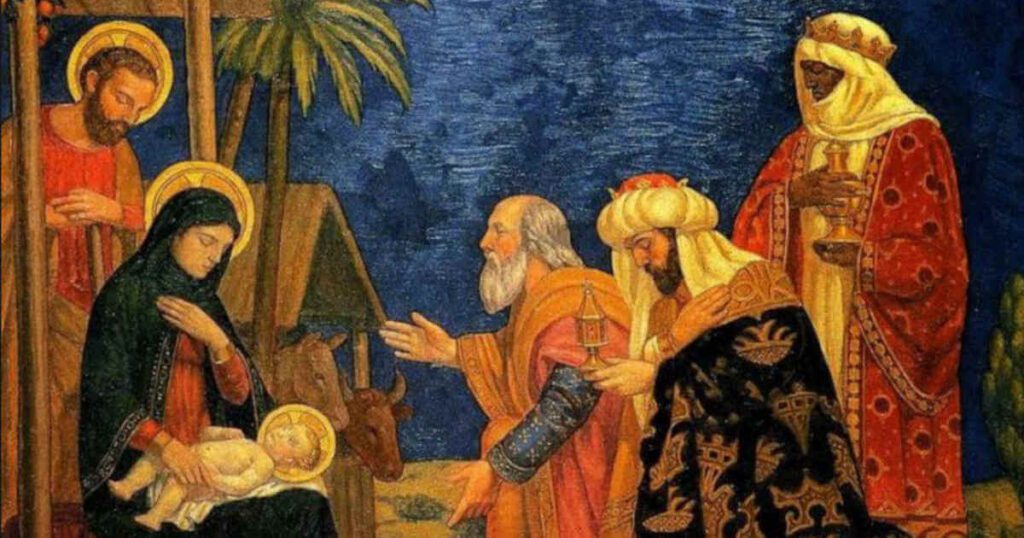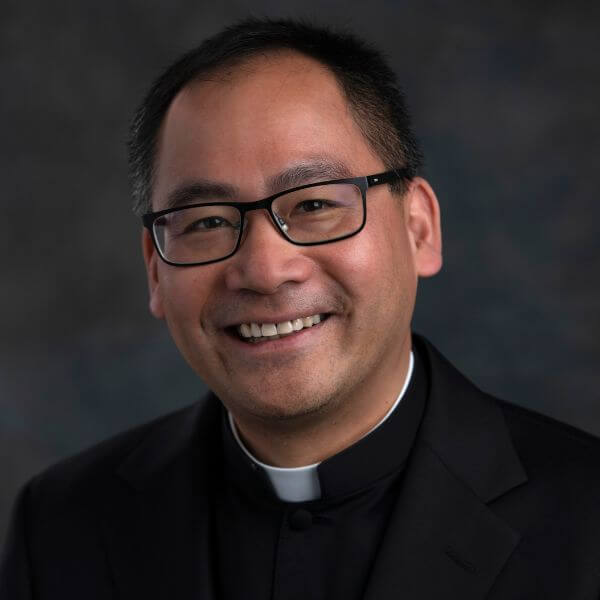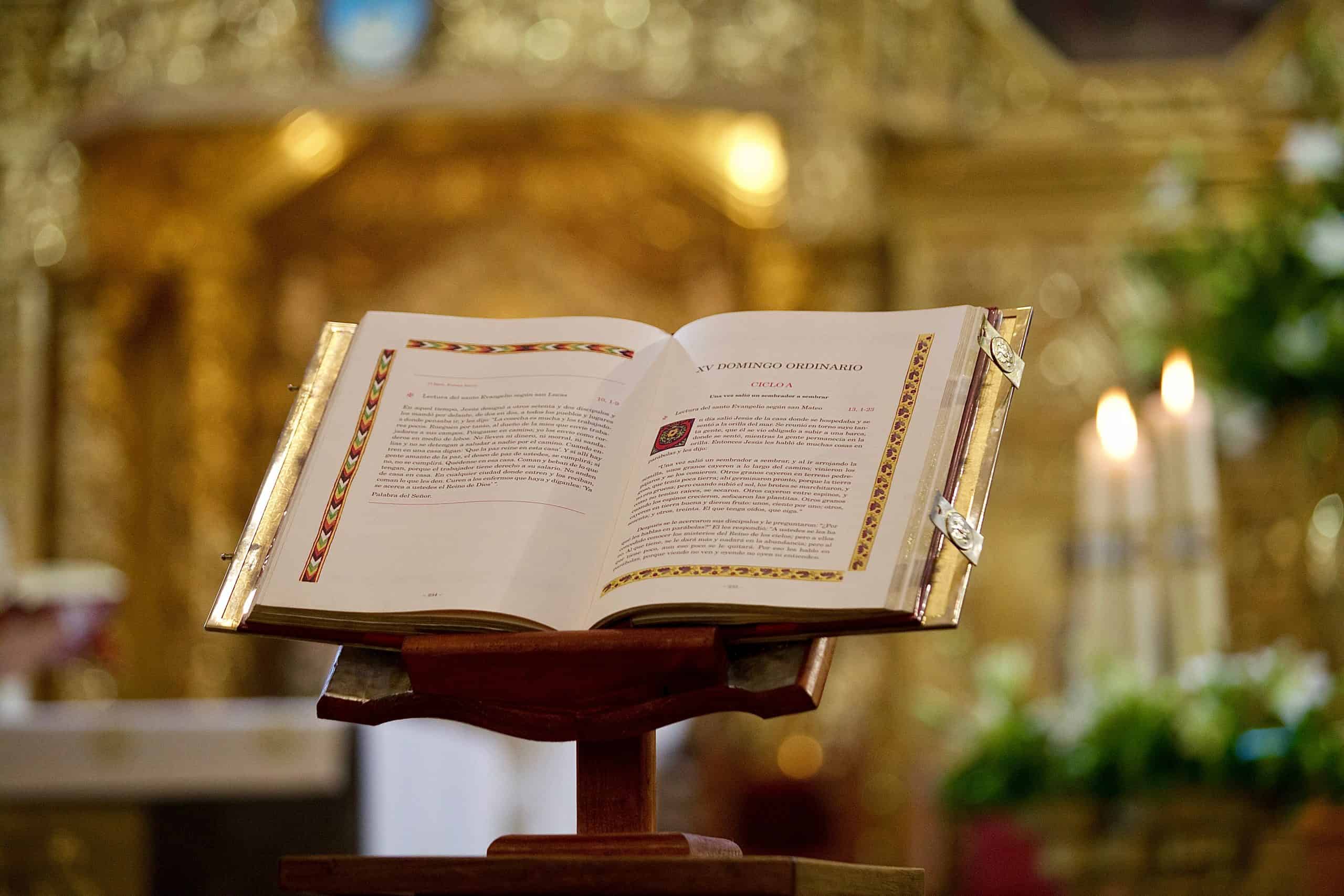
Christmas
Solemnity of the Epiphany of the Lord
 Speaker: Fr. Lam Le
Speaker: Fr. Lam Le
Message:
On entering the house, they saw the child with Mary his mother. They prostrated themselves and did him homage. (Mt 2:11)
On this Solemnity of the Epiphany of the Lord, the Church celebrates the manifestation (epiphany) of Christ to the nations in the persons of the magi—also known as the wise men or the three kings. In earlier times, this celebration combined with two other revelations: the Lord’s Baptism and the wedding feast at Cana. This is still the custom in Eastern Christianity. Originally, the Solemnity is on January 6th. In the United States and some other countries, it is celebrated on the Sunday after January 1st so more Catholics can participate. Thus, we celebrate this Sunday, January 8, 2023, the Solemnity of the Epiphany whereas our Holy Father led this solemn Liturgy last Friday in at St. Peter Basilica in the Vatican.
I would like to draw your attention to the one action of the magi and thus serve as an example for us to imitate when we encounter the Eucharistic Lord. Namely, “On entering the house they saw the child with Mary his mother. They prostrated themselves and did him homage” (Mt 2:11). The magi were men who belonged to a class of priests-scientists-philosophers. They were the intellectuals of their time. Through the means to which they were accustomed, such as reading “signs” in nature, God drew them to true knowledge, in this case, the knowledge of Himself and of the Christ.
For the intellectuals of their time to “prostrate themselves” before the infant, laid in the manger, it required a great humility in their hearts. To be sure, in their studies and searches they formed certain ideas of who the Messiah or the Newborn King must be. In Bethlehem of Judea, they found an infant laid in the manger, the animal trough! The magi had to set aside all their expectations in welcoming the wonderful surprise that God had for the human family. It required the humble hearts to recognize that the Child born of Mary, was Lord of heaven and earth. This humility led them to an action: “they prostrated themselves and did him homage” (Mt 2:1); literally they felt on the ground to worship Him. What a great act of humility for a class of people with knowledge, power, and prestige.
In every Eucharistic celebration, we are called to follow the example of the magi as well. After the invocation of the Holy Spirit and at the words of consecration, bread and wine become the very Body and Blood of our Lord Jesus Christ. Perhaps, with these words, “on entering the house they saw the child with Mary his mother,” the evangelist Matthew linked what the magi saw with our meeting of the Lord on the altar of every church. In every Eucharistic celebration, the very flesh and blood that the Eternal Word assumed in the womb of the Blessed Virgin Mary now is actualized on the altar. Therefore, we need to have the humility to set aside how we want God to appear to us and what way we would like to worship God. Instead, have the humility to trust in God’s Word: “This is my body” and “This is my blood.” May we have humility like that of the magi and “prostrate” ourselves in giving the Lord homage.
Celebrating the Solemnity of the Epiphany of the Lord invites us to ask ourselves this question: “do I give the Lord, who is truly present in the Eucharist, due reverence and respect?” Just as the magi were guided by the star to set aside their own idiosyncrasies in Bethlehem of Judea, so we must ask the Holy Spirit to purge away all our pride so upon entering the Lord’s house, the parish church, we see in the tabernacle the Real Presence of Jesus, born of Mary. In seeing Him, with all our humility, let us follow the example of the magi: “They prostrated themselves and did him homage” (Mt 2:11).
Scriptural Readings: Reading I Is 60:1-6 ; Responsorial Psalm Ps 72:1-2, 7-8, 10-11, 12-13.; Reading II Eph 3:2-3a, 5-6; Alleluia Mt 2:2; Gospel Mt 2:1-12

